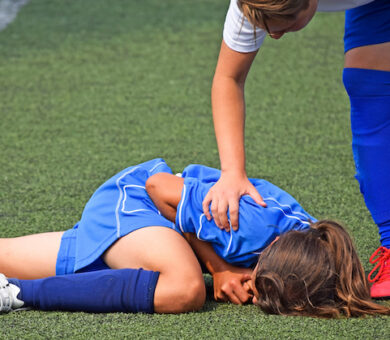Athletes – You Need Your ZZZ’s
Vitamin Zzz
Vitamin Zzz, aka sleep, is one of the best performance enhancers. On the flip side, lack of sleep has detrimental effects on performance. Athletes with good sleep quality are able to train harder, recover faster, and perform better. And take note: if you think you can drink coffee at night and still sleep fine, think again.
According to the NCAA, 61% of student athletes report daytime fatigue multiple times per week. On the same note, 19% of males and 23% of females reported difficulty sleeping.
How Much Sleep Is Enough?
More than 6 hours a night. Very few athletes can perform well with less than that. Top athletes commonly strive to get 8 to 10 hours of sleep each day, including a nap between 1:00 and 4:00 pm (a later nap results in poorer sleep that night).
Teens should target 8 to 10 hours and adults 7 to 9 hours. Lack of sleep can significantly impact your diet. After two nights with only 4 to 5 hours of sleep, appetite increases about 20%.
Below is a shortlist of the many ways lack of sleep affects athletes.
The Impact of Lack of Sleep
- Snacking more than usual (on fatty foods)
- Eating fewer fruits and veggies
- Consuming more calories ~ on average 385 additional calories
- Higher stress levels
- Decreased ability to focus
- Memory issues
- Daytime fatigue
- Increase in mood swings
- Weakened immune systems
- Higher blood pressure

Causes of Lack of Sleep
- Trying to balance academics, sports, and social activities
- Unpredictable schedules
- Traveling through multiple time zones
- Different sleeping arrangements on the road (in different hotels)
- Jet lag
- Disrupted schedules – hard to maintain a routine
- Stress of competitions
Why Athletes Need Sufficient Sleep
- To recover faster physically
- To allow the heart to rest
- To allow tissues and cells to repair themselves
- To prevent illness and maintain a strong immune system
- Athletes perform better when rested
- To maintain mental health

Preventing Lack of Sleep
- Try to maintain a schedule as much as possible, including weekends.
- Avoid daytime naps past 4:00pm.
- Limit caffeine intake past noon or right before bedtime.
- Try to limit screen time right before bedtime.
- Try to do something relaxing before bedtime (meditation, breathing exercises, etc.).
- Try to avoid arguments right before you go to bed.
- Release your daily activity every night through journaling.
- Create a “wind-down” routine before bedtime.
It’s difficult for student-athletes to meet the 8-10 required hours of sleep recommended for teens. However, understanding the implications of lack of sleep will hopefully trigger you to pay more attention to your health.
Athletes who understand the benefits of sleep tend to sleep about 20 minutes more than other athletes.
We hope you are working to get your zzz’s!
Sources:
- Healthline, November 5, 2021, “The Effects of Sleep Deprivation on Your Body” – Hailey Hudson
- The NCAA, – “Mind, Body and Sport: Sleeping Disorders” – Michael Grandner
- Sleep Foundation, June 2021, “Sleep, Athletic Performance, and Recovery” – Alexa Fry
- Nancy Clark MS RD CSSD, Dec 2019


